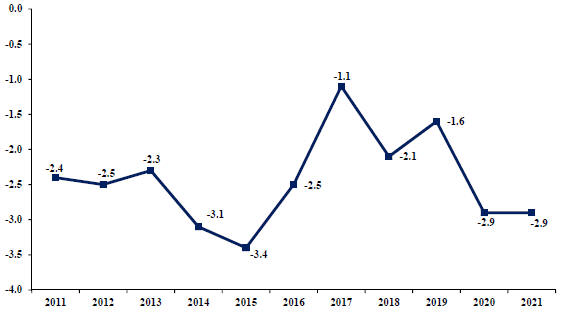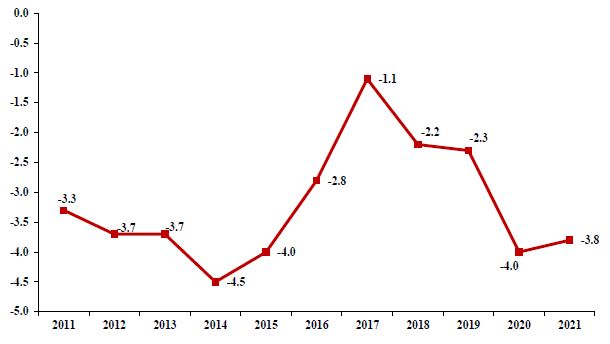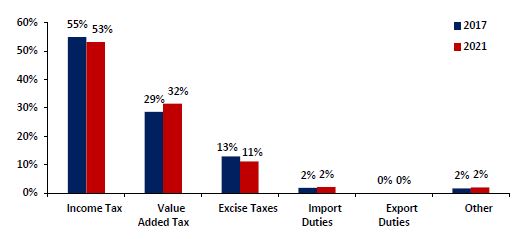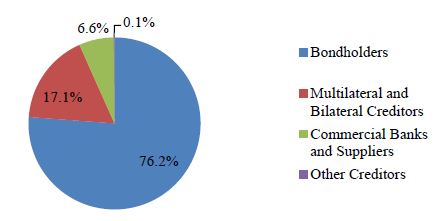In June 2019, Mexican and U.S. officials agreed to implement a series of actions to reduce the amount of trafficking and human smuggling across their shared border. The parties also agreed that asylum seekers will remain in Mexico pending the resolution of their cases in the United States and be provided with protection, employment opportunities, healthcare and education. The National Guard has also been deployed to Mexico’s southern border, as part of the Government’s previous plan to support immigration officials.
Representatives of Mexico and the United States met on July 21, 2019 and September 10, 2019 to analyze the progress of the June 2019 agreement on immigration. Since its implementation, there has been a reduction every month in the number of apprehensions by U.S. authorities in U.S. territory. Additional checkpoints were set up on Mexico’s northern and southern borders. In addition, hundreds of rescue operations have been carried out against alleged migrant traffickers on foot and via railways and vehicles like tractor-trailers and buses. The Government has also made efforts to offer opportunities to migrants, particularly from Central America.
To mitigate the short- and long-term adverse social and economic effects of the COVID-19 pandemic in allied countries, on June 12, 2020, the EU launched the “Team Europe” program, a global aid package of over €20 billion (Ps. 520 billion). The program allocated €8 million (Ps. 200 million) to tackle Mexico’s most immediate needs, including, among others, supporting the public health system, facilitating on-line education for children and protecting vulnerable groups such as women at risk of violence, immigrants, human rights defenders, journalists and victims of human rights violations. The program also enables the exchange of technical assistance and best practices related to crime prevention and access to justice.
Mexico was re-elected as a non-permanent member of the United Nations Human Rights Council (UNHRC) for a two-year term on October 13, 2020. In addition, Mexico began its two-year term as a non-permanent member of the United Nations Security Council (UNSC) and three-year term as a member of the United Nations Economic and Social Council (ECOSOC) on January 1, 2021.
At the CELAC summit of January 8, 2020, Mexico assumed the role of Presidency Pro Tempore of CELAC from January 2020 to January 2021, which has been extended to January 2022. On May 27, 2021, Mexico also assumed the Presidency of the Consejo de Ministros de la Asociación de Estados del Caribe (Council of Ministers of the Association of Caribbean States, or AEC) for a one-year term.
On July 23, 2021, Mexico and Panama signed the Acuerdo de Asociación Estratégica (Strategic Partnership Agreement), aimed at promoting dialogue and cooperation on bilateral, regional and multilateral issues. The Agreement is focused on strengthening the economic relationship between the two countries, including through treaties relating to trade and investment.
The U.S.-Mexico High-Level Economic Dialogue (HLED) was reactivated on September 9, 2021, with the goal of advancing strategic economic, social and commercial priorities between the two countries. The HLED has four central pillars: (1) strengthening supply chains and facilitating trade between the U.S. and Mexico; (2) promoting economic, social and sustainable development in southern Mexico and Central America to address the structural causes of emigration in northern Central America; (3) mitigating cyber threats and improving the flow of data between the two countries; and (4) training and promoting a more educated and competitive workforce, as well as integrating small- and medium-sized businesses into regional value chains. On December 13, 2021, the Secretaría de Relaciones Exteriores (Ministry of Foreign Affairs), the Secretaría de Economía (Ministry of Economy) and the Ministry of Finance and Public Credit, along with the current U.S. administration, presented the working plan derived from the HLED, which includes more than ten concrete projects based on the four pillars.
Mexico was a signatory at the establishment of the Latin American and Caribbean Space Agency (ALCE) on September 18, 2021. ALCE is an international organization aimed at coordinating cooperation in space technology, research, exploration, and related applications to strengthen the comprehensive and sustainable development of a regional space program. The Agency will enhance the region’s capabilities in observation systems for use in agriculture, natural disasters, security and surveillance, oceanography, meteorology, exploration of natural resources and urban intelligence and cartography.
Mexico was reelected to the International Maritime Organization (IMO) Council during the 32nd IMO General Assembly on December 10, 2021. Mexico is a founding member of the IMO and has actively participated in the IMO Council’s work to develop and implement international instruments and to cooperative actions in the areas of safety, protection of the marine environment, technical cooperation and training.
D-32



